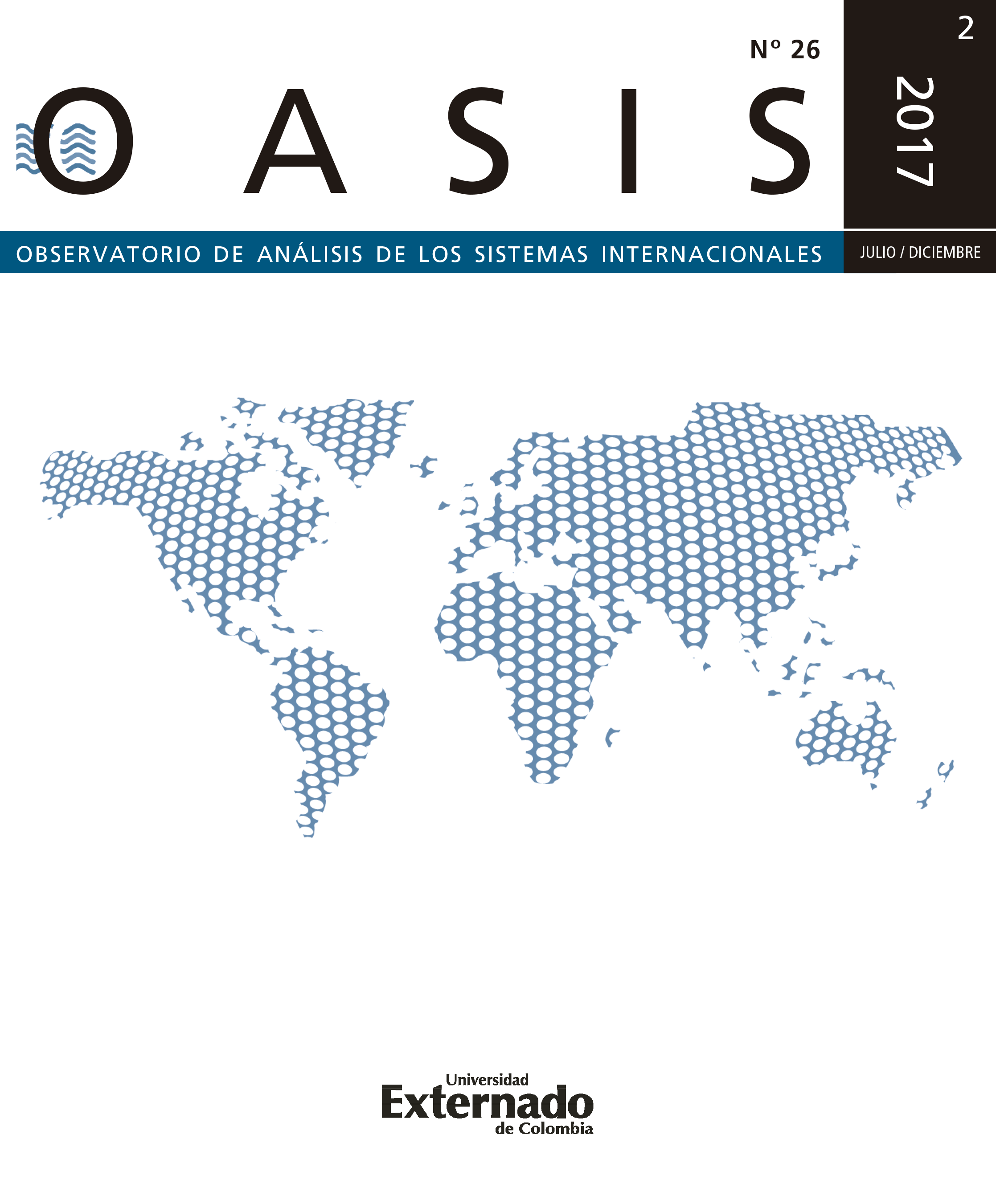Republic of Korea: culture, globalization and social change
La República de Corea: cultura, globalización y cambio social
Main Article Content
Abstract
The Republic of Korea has managed to position itself globally as a fast-developing country with a strong economy, characterized as a diligent actor actively involved in global dynamics. In the last decades it has served as a “model” country under the slogan of having achieved a rapid transformation out of the ashes in order to become a donor country in a short period. Although this transformation is mainly due to the democratization process and the order imposed by the liberalization of world markets, this paper analyzes how the Asian country has faced the process of globalization, focusing mainly on the social structure. The article explores the impact that the integration of the country into the globalization process has had on the Korean society and culture, as well as the social manifestations that currently reveal scenarios of confrontation and conflict between different groups inside the country.
Downloads
Article Details
References / See
Globalization, Routledge Advances in Korean Studies (pp. 227-228). London: Routledge.
Berger, P. L. y Huntington, S. (2002). Many Globalizations, Cultural Diversity in Contemporary World. New York: Oxford University Press.
Board, J. (2015). Migrant workers treated like “slaves” in South Korea’s agricultural industry. Channel New Asia.
Channel New Asia (2015). Migrant workers treated like “slaves” in South Korea’s agricultural industry.
García, N. (1999). La globalización imaginada. Buenos Aires: Paidós.
García,, N. (2002). Culturas populares en el capitalismo. México: Grijalbo.
García, N. (2009). Culturas híbridas. Estrategias para entrar y salir de la modernidad. México: Random House Mondadori.
Guibernau, M. (1996). Nationalisms: The Nation-State and Nationalism in the Twentieth Century. Oxford: Polity Press.
Hahm, C. (2008). South Korea’s Miraculous Democracy. The Journal of Democracy, 19 (3), 128-142.
Ianni, O. (1996). Teorías de la globalización. México: Siglo xxi Editores, ceiich-unam.
Ilyon (1997). Samguk Yusa: Legends and History of the Three Kingdoms of Ancient Korea. Seoul: Yonsei University Press.
Kim, D. (2015). How Jasmine Lee, One od Most Hated Woman in Korea, Is Changing the Country. Huff Post Korea.
Kim, S. (2000). Korea and Globalization. New York: Columbia University.
Kim, Y. S. (1996). Korea´s Reform and Globalization. Seoul: Korean Overseas Information Service.
Lee, P.-S. (2000). Economic Crisis. Discussion Paper Series, 14, 1-20.
Lee, Y.-i. (2012). Soulth Korea´s globalization in the late twentieth century: An end to economic nationalism?, en Globalization and Economic Nationalism in Asia (pp. 157-176). Oxford: Oxford University Press.
López R., N. (2015). El rol del Hallyu como cultura pop en la creación y la difusión de la imagen de la mujer coreana contemporánea. portes, revista mexicana de estudios sobre la Cuenca del Pacífico, 9 (18), 171-195.
López R., N. y Ryzhkov, A. (2017). Hallyu as a vehicle for internationalizing the Korean culture: official discourse and its repercussions. Journal of Korean Culture, 36, 131-158.
Nelson, R. y Pack, H. (1999). The asian miracle and modern growth theory. The Economic Journal, 109 (Issue 457), 416-436.
OECD (2017a). Income Inequality (Indicator). doi: 10.1787/459aa7f1-en
OECD (2017b). Violence Against Women (Indicator). doi: 10.1787/f1eb4876-en
OECD (2017c). Women Political Voice (Indicator). doi: 10.1787/edc3ff4f-en
Oh, I. y Jun, H. (2016). Economic Miracle: from pos-war reconstruction to post-crisis affluence. Routledge Handbook of Modern Korean History (pp. 295- 313). New York: Routledge.
Ponce de la F., H. (1998-1999). José Joaquín Bunner: globalización cultural y posmodernidad. Revista Chilena de Humanidades, 18/19, 313-318.
Saxer, C. J. (s/f.). Globalization as Policy: The South Korean experience. Documento no publicado.
Serna de la G., J. M. (2012). Impacto e implicaciones constitucionales de la globalización en el Sistema jurídico mexicano. México: unam.
Shin, G.-W. (2003). The Paradox of Korean Globalization. California: Stanford University-The Asia/Pacific Research Center.
Strother, J. (2014). South Korea´s protesting priests. The Wall Street Journal.
Tai, C. (2016). South Korea´s umbrella movement? How protests against park Geun-hye exposed crack in a ‘slave’ democracy. scmp.
The World Bank (2017). Overview (Republic of Korea). The World Bank.









